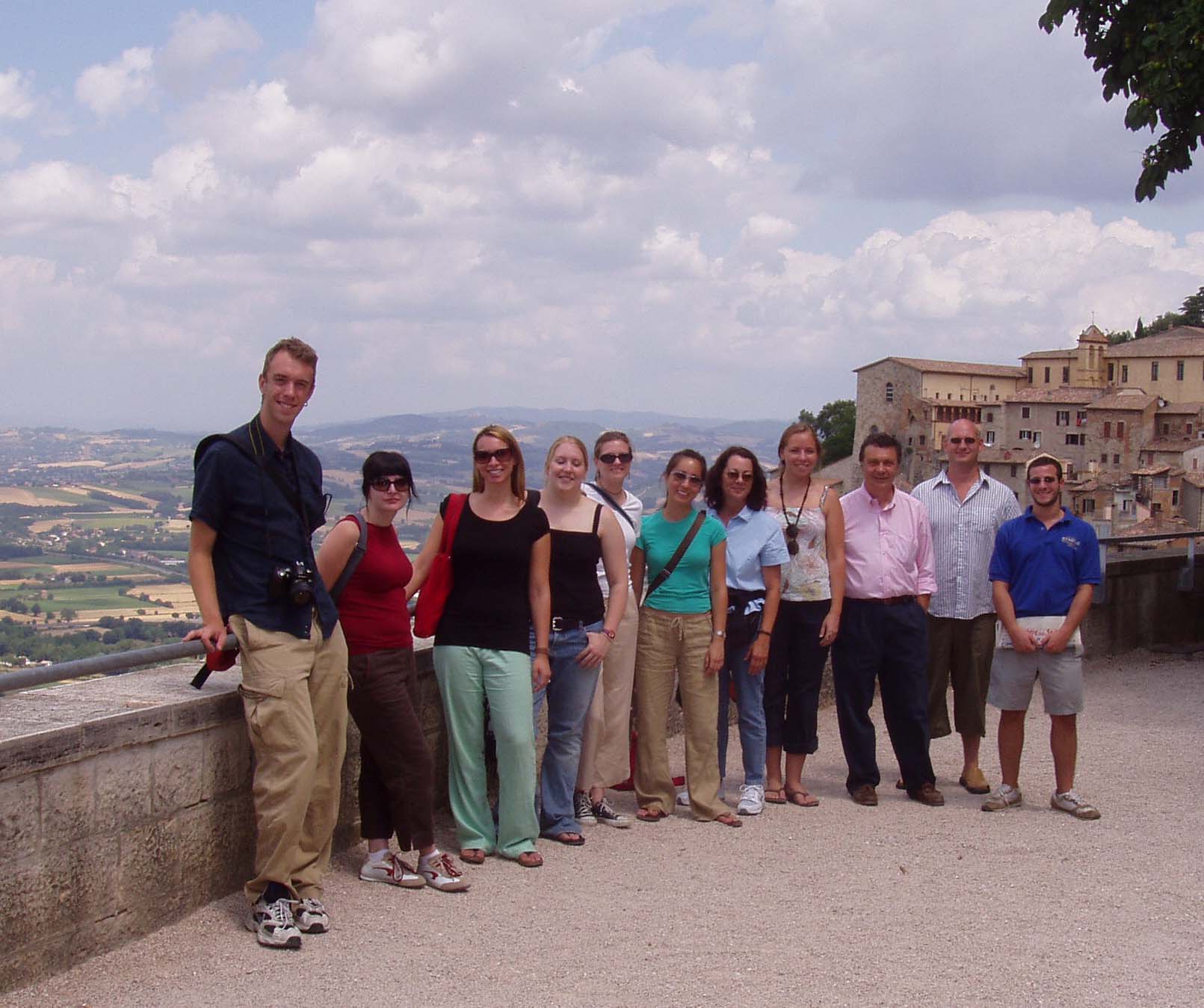Student Services
/Student services
Our aim is to respond to the needs of our participants by offering the experience and advice of our faculty and staff, who are at hand 24 hours seven days a week during the program (and throughout the year via email) and available to address any questions or concerns a participant may have, including academic, safety, travel, entertainment, food, etc. We encourage students to organize their own explorations, however, we also organize tours, trips and other educational and fun activities, such as Italian film nights, community festivals, local dinner events, concerts, cooking classes and pot-lucks.
Orientation
In San Gemini, the day before classes begin, we conduct a 2-hour orientation and invite all participants and staff to a welcoming reception. The orientation is designed to help students navigate their stay in San Gemini as smoothly as possible. Issues covered in orientation include: accommodations, linen, laundry, kitchen, electricity, environmental considerations, trash and recycling, the classrooms, the office, class schedules, food, open-market, stores, restaurants, swimming pool, money, telephones, internet, public transport, local laws, safety, local customs and practices, medical services, insurance, etc.
We coordinate Zoom calls with participants and staff members a month before programs begin in order to review the program, travel to San Gemini and answer any questions.
We provide a travel logistics document that covers travel to San Gemini and other issues such as being a safe traveler, what to pack, money exchange, etc.
The first day of class includes an overview of the local history and a tour of San Gemini and the nearby ancient Roman town of Carsulae, both towns being integral to the programs’ field work.
Health and Safety Protocol
SGPS requires all students purchase comprehensive study abroad insurance from CISI.
Health and safety issues are reviewed during our orientation (see above).
Students are also asked to read and sign the rules and regulations and liability release form
Travel Abroad Advice for Participants
Italy is generally a very safe place. Nevertheless, you must be careful in some situations and watch out for pickpockets. This problem exists mostly at large train stations (Rome, Florence, Milan, Naples) and at some major tourist attractions. Unsuspecting tourists are prime targets.
San Gemini is a small, very safe town and you don't have any of these problems. However, you need to follow common sense precautions, such as: lock the doors when you leave the apartment and do not leave expensive equipment lying around unsupervised.
Things to do when traveling:
Always carry your passport and money in the front pocket of pants or inside pocket of jacket (close to your body and hard to reach).
Make sure that your luggage is always with you.
Do not carry expensive equipment in obvious camera or computer bags.
Never take rides from people offering a car service at rail stations, take only official taxi cabs.
Keep copies of your passport, credit cards and driver’s license both with you and at home.
Shoulder bags: do not put all your valuables in one wallet inside your bag. That is the first thing pickpockets take.
Below are some resources with advice for travelers, including individuals who self-define as BIPOC, LGBTQ+, and female. As many of these websites conclude, the best experiences and most meaningful connections when studying abroad come from having flexibility, an open mind, and a willingness to work to understand each other. Ultimately, it is up to the student to familiarize themselves with the culture and attitudes of a foreign country. Regardless of race, gender identity, or sexual orientation, when we meet new people and share new experiences, it is our similarities that we celebrate, and that help us look out for each other.
The U.S. State Department has advice on its website about travelling abroad as an American and as a student:
https://travel.state.gov/content/travel/en/international-travel/before-you-go/travelers-with- special-considerations.html
https://travel.state.gov/content/travel/en/international-travel/before-you-go/travelers-with- special-considerations/students.html
Most universities will also have their own resources for BIPOC, LGBTQ+, and female students studying abroad:
General Abroad: https://www.globalsupport.harvard.edu/travel/advice/navigating-your- identities-abroad
BIPOC Student Experiences
GoAbroad.com: https://www.goabroad.com/articles/study-abroad/black-students-travel-guide#:~:text=However%2C%20don%27t%20let%20one,of%20what%20you%20look%20 like.
American Field Service (AFS): https://www.afsusa.org/blog/study-abroad- articles/advice-resources-for-black-students-abroad/
University of Wisconsin: https://studyabroad.wisc.edu/student-identity/race-and- ethnicity-abroad/black/
GoOverseas.com:
https://www.gooverseas.com/blog/study-abroad-for-BIPOC-students
https://www.gooverseas.com/blog/6-things-wish-knew-studying-abroad-african- american
University of Kansas: https://studyabroad.ku.edu/students-of-color-abroad
Diversity Abroad: https://www.diversityabroad.com/articles/identity-abroad-series- black-student-experiences-europe
LGBTQ+ Student Experiences
Western Washington University: https://studyabroad.wwu.edu/lgbtq-students-abroad#:~:text=Learn%20the%20laws%20of%20your,LGBTQ%2B%20material%20may%2 0be%20illegal.
Harvard University: https://www.globalsupport.harvard.edu/travel/advice/lgbtq-travel- guidance-resources
Female Student Experiences
University of Wisconsin: https://studyabroad.wisc.edu/student-identity/women- travelers/
Missouri State University:
https://international.missouristate.edu/EducationAbroad/advice-for-women.htm
















